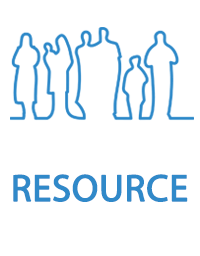IASC (2012-01) IASC TRANSFORMATIVE AGENDA - 2012
Section: Whole document (pp1-12)
Transformative Agenda actions for 2012 - basis for the development of the Transformative Agenda Protocols in late 2012 / early 2013.
UNOCHA (2012-03) OCHA ON MESSAGE: THE CLUSTER APPROACH
Section: Whole document (pp1-2)
Brief history of the Cluster Approach.
IASC (2012-04) TA PROTOCOL 1: CONCEPT PAPER ON ‘EMPOWERED LEADERSHIP’ (TRANSFORMATIVE AGENDA)
Section: Whole document (pp1-4)
"This paper clarifies what is meant by the concept of ‘empowered leadership’ during the initial 3-month period following the declaration of a Level 3 (L3) emergency." Mostly related to the descision-making powers of the HC & HCT in situations without consensus or where there are delays and the responsibilities of other agencies to the HC.
IASC (2012-04) CONCEPT PAPER ON THE INTER-AGENCY RAPID RESPONSE MECHANISM (IARRM) (DOCUMENT 3 TRANSFORMATIVE AGENDA)
Section: Whole document (pp1-3)
The aim of IARRM is "...to deploy senior qualified OCHA core functions and senior qualified ‘L3 capable’coordinators for all clusters and requisite support staff (e.g. information management), where the agencies determine that this capacity is not already in place."
ALNAP (2012-07) THE STATE OF THE HUMANITARIAN SYSTEM 2012 EDITION
Section: 4.3 - 4.5 on Effectiveness, Connectedness and Efficiency (pp53-78)
"This report represents the first attempt by the international humanitarian system to systematically monitor and report on its progress and performance..." Sections 4.3 - 4.5 on Effectiveness, Connectedness and Efficiency provide a round-up of progress related to the cluster approach between 2010-2012.
UNOCHA (2012-11) THE TRANSFORMATIVE AGENDA: WHAT DOES IT MEAN FOR CLUSTER COORDINATION?
Section: Whole document (pp1-18)
Slide presentation explaining the reason for the Transformative approach. "There is a need to restate and return to the original purpose of clusters, refocusing them on strategic and operational gaps analysis, planning, assessment and results."
IASC (2012-11) TA PROTOCOL 3: RESPONDING TO LEVEL 3 EMERGENCIES: WHAT ‘EMPOWERED LEADERSHIP’ LOOKS LIKE IN PRACTICE (TRANSFORMATIVE AGENDA)
Section: Whole document (pp1-2)
"Following the adoption of the IASC Transformative Agenda, Humanitarian Coordinators (HC) will be empowered to lead the response to any Level 3 (L3) crisis for an initial period of three months."
IASC (2012-11) TA PROTOCOL 5: RESPONDING TO LEVEL 3 EMERGENCIES: THE HUMANITARIAN PROGRAMME CYCLE (TRANSFORMATIVE AGENDA)
Section: Whole document (pp1-6)
"This paper seeks to provide senior managers and decision makers in the field and at Headquarters with a clear overview of the humanitarian programme cycle, its various parts and how they interact."
IASC (2012-12) PRESENTATION ON THE IASC TRANSFORMATIVE AGENDA (PRESENTATION ON THE 3 PILLARS)
Section: Whole document (pp1-16)
Slide presentation explaining the three pillars of the Transformative Agenda: Leadership, Coordination and Accountability.
IASC (2012-12) KEY MESSAGES ON THE IASC TRANSFORMATIVE AGENDA
Section: Whole document (pp1-5)
Brief overview of Transformative Agenda asking: What is it?; Why do we need it?; What does it do?; What makes this different?; FAQ. Three pillars: stronger leadership, more effective coordination structures, and improved accountability.
THE GLOBAL NUTRITION CLUSTER (2013-01) NUTRITION CLUSTER HANDBOOK: A PRACTICAL GUIDE TO COUNTRY-LEVEL ACTION
Section: Chapter 10: Humanitarian Action and the Nutrition Cluster (pp351-377)
Most recent (2013) sector handbook summary on the Cluster. Good overview. Section 10.1: Humanitarian reform process; Section 10.2: understanding the Cluster approach at global level; Section 10.3: key components of the Cluster approach in practice.

